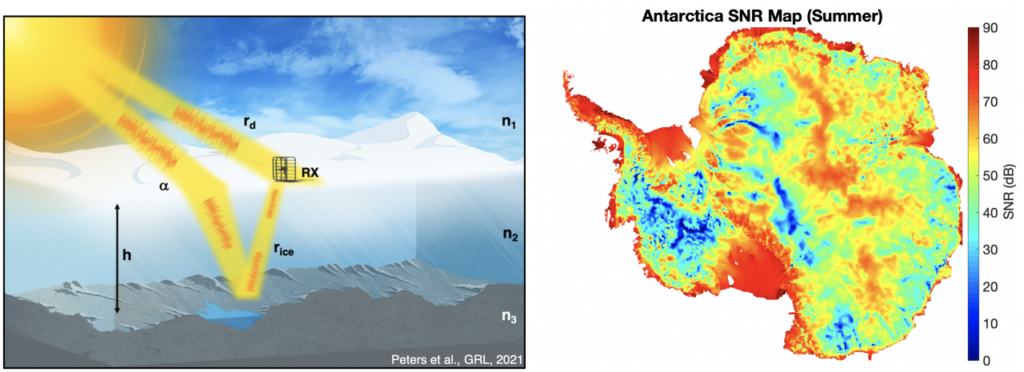OCTOBER 21, 2022 at 10:30am CST
Speaker: Sean Peters, Assistant Professor, Naval Postgraduate School
Host: Duncan Young
Title: Passive Radar Investigations for Terrestrial and Planetary Radio Glaciology
Abstract: Traditional ice-penetrating radars transmit a powerful electromagnetic pulse and record the echo’s delay time and power to measure ice sheet thickness and subsurface conditions of glaciers. Such observations are critical for understanding and predicting future ice sheet behavior and contribution to global sea-level rise; however, existing ice-penetrating radar systems are resource-intensive in terms of cost, power, and logistics when continuously monitoring ice sheets at both their evolving spatial (local to continental) and temporal (daily to multiannual) scales. In this seminar, I will describe our developed passive radar system and signal processing techniques that leverage ambient radio noise sources (instead of transmitting a powerful radio signal), in efforts to enable cost-effective, low-resource, and ubiquitous monitoring of ice sheets at the desired spatiotemporal scales. First, I present the results of our passive radar sounding demonstration using the Sun to measure ice sheet thickness at Store Glacier, Greenland. I then project the passive radar’s performance and ability to provide valuable glaciological observations (such as melt rates, bed reflectivity changes, and englacial water storage) across Greenland and Antarctica.
In the second part of my presentation, I then extend this technique to enable passive synthetic aperture radar (SAR) imaging using radio-astronomical noise sources (e.g., the Sun and Jupiter’s radio emissions). I conclude by highlighting applications of this technique to planetary remote sensing, such as (1) analyzing solar radio burst candidates for passive sounding using the Mars Reconnaissance Orbiter (MRO) Shallow Radar (SHARAD) and (2) using Jupiter’s HF radio emissions alongside an active VHF radar to correct for ionospheric dispersion and characterize Europa’s ionosphere during a flyby mission.


